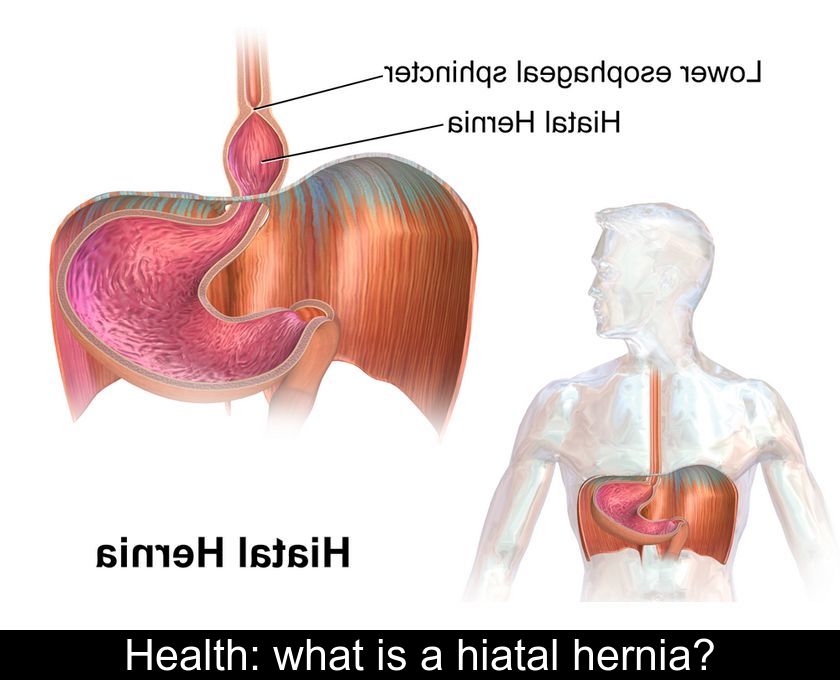Health: What Is A Hiatal Hernia?
A very common pathology, hiatal hernia is a hernia in the digestive system and more precisely in the upper part of the stomach. We propose to discover the consequences of this problem on health and the possible treatments.
Where is this hernia located?
To understand what a hiatal hernia consists of, you need to know that hiatus is the medical name given to the opening through which the esophagus passes through the diaphragm muscle.
In a healthy person, the junction between the lower esophagus and the upper stomach is below the diaphragm muscle. The esophagus simply passes through this muscle through the hiatus.
In contrast, in people with a hernia, the stomach comes up through this orifice and its upper part is therefore above the diaphragm muscle.
This problem can have congenital causes (a larger-than-normal hiatus), accidental causes (an injury to the stomach), or related to your lifestyle (stress, being overweight, or changes in the diaphragm with age).
What are the different types of hiatal hernias?
Doctors mainly distinguish two types of hiatal hernias.
The most common, which accounts for 90% of cases, is slip hernia. In this case, the gastroesophageal junction 'slips' through the hiatus and moves up into the chest, taking a portion of the stomach with it.
The second, much less common type of hernia is rolling hiatal hernia. The gastroesophageal junction remains in its place but a portion of the stomach, compressed by the diaphragm, moves upward and becomes attached to the esophagus.
Finally, in very rare cases, one may suffer from mixed hernia, which combines these two types of hiatal hernias.
Is it a serious pathology?
If you have been diagnosed with a hiatal hernia, which is quite common, be aware that this digestive system disorder is beneath the surface in most cases.
This hernia is often diagnosed by chance, as it is asymptomatic in over 85% of patients.
In the remaining 15%, it causes gastroesophageal reflux disease or GERD and heartburn.
The principal symptoms are heartburn, chest pain, chronic cough, and even ulcers. Abdominal pain and bloating may also be experienced.
Serious complications are very rare and only occur in patients whose hernia measures more than 5 cm. In this case, the stomach may become strangulated, leading to a risk of necrosis of the gastric wall and requiring surgery.
This type of complication accounts for only 2-5% of hiatal hernias per rotation.
What are the recommended treatments?
In most cases, it is possible to live with a hiatal hernia without even realizing it.
If your hernia is causing mild symptoms of GERD (gastroesophageal reflux disease), your doctor will prescribe anti-acid medications called proton pump inhibitors or PPIs.
You can also relieve your symptoms by following the following nutritional recommendations:
- Split your meals so you don't overload your stomach with large amounts of food
- avoiding Tobacco and alcohol
- limit caffeine
- limit acidic foods such as citrus fruits and tomatoes
- avoid wearing tight clothing around the abdomen
- do not go to bed less than 2 hours after eating
- elevate your head when you sleep, with a special Pillow or by placing wedges under the legs of your bed.
Surgery is indicated as a last resort, when drug treatment is ineffective or when your hiatal hernia is large and at risk for complications.
The procedure, which is commonly performed laparoscopically, involves placing the stomach back into the abdominal cavity and making an anti-reflux valve using part of the stomach.







